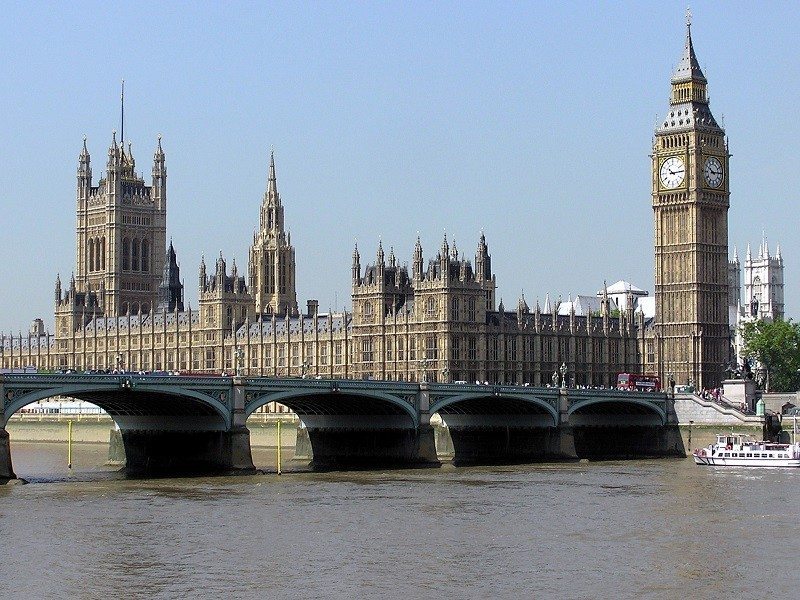Full Scope of UK’s Worrying Surveillance Bill Revealed
Ashley Allen / 9 years ago

The UK Home Secretary, Conservative MP Theresa May, has outlined the full scope of the proposed Investigatory Powers Bill. The bill, which has been teased by both May and UK Prime Minister David Cameron as a legal means by which police and intelligence services can bypass internet and telecommunication encryption and access the internet history of any UK citizen without judicial oversight, has confirmed the fears of many that the concept of privacy on the internet will become a thing of the past in the UK.
The new powers, as revealed by May in Parliament on Wednesday (4th November) and in draft form on the UK Government’s website [PDF], grant UK law enforcement agencies the ability to access and intercept a user’s internet data, which internet service providers will be required by law to store for up to 12 months, and place a legal obligation on companies to allow the UK Government backdoors by which to bypass encryption, but will be powerless to ban end-to-end encryption since such facilities being protected under European Union law.
The response to the bill outside the House of Commons has been almost uniformly negative, with many fearing that it marks an end to internet human rights in the UK, and that tech companies could pull out of the country over it:
"It's only communications data" = "It's only a comprehensive record of your private activities." It's the activity log of your life. #IPBill
— Edward Snowden (@Snowden) November 4, 2015
https://twitter.com/jamesrbuk/status/661904968404873216
Anti-whistleblower clause in #IPBill pic.twitter.com/o84TmlYpcX
— Ryan Gallagher (@rj_gallagher) November 4, 2015
Surveillance should be targeted, not indiscriminate. Entire system should be under control of independent judges, not politicians. #IPBill
— Amnesty UK (@AmnestyUK) November 4, 2015
I would like to see Apple refuse to sell iPhone in UK if gov't bans end-to-end encryption. Does Parliament dare be that stupid?
— Jimmy Wales (@jimmy_wales) November 3, 2015
https://twitter.com/carlynyst/status/661895043490430976
The offline version of 'web history' is every house, shop, street, toilet, park you visit, every car, bus, train you board and more #IPBill
— Prof Paul Bernal (@PaulbernalUK) November 4, 2015
For most people web browsing will also indicate who you bank with, what your tastes are, political views, sexuality and religion #IPBill
— Prof Paul Bernal (@PaulbernalUK) November 4, 2015
Let's not pretend that keeping web history – even only domains – is a small deal. It isn't. It's a huge deal. #IPBill
— Prof Paul Bernal (@PaulbernalUK) November 4, 2015
A full summary of the Investigatory Powers Bill (via The Guardian):
- Requires web and phone companies to store records of websites visited by every citizen for 12 months for access by police, security services and other public bodies.
- Makes explicit in law for the first time security services’ powers for the “bulk collection” of large volumes of personal communications data.
- Makes explicit in law for the first time the powers of the security services and police to hack into and bug computers and phones. Places new legal obligation on companies to assist in these operations to bypass encryption.
- New “double-lock” on ministerial authorisation of intercept warrants with a panel of seven judicial commissioners given power of veto. But exemptions allowed in “urgent cases” of up to five days.
- Existing system of three oversight commissioners replaced with single investigatory powers commissioner who will be a senior judge.
- Prime minister to be consulted in all cases involving interception of MPs’ communications. Safeguards on requests for communications data in other “sensitive professions” such as journalists to be written into law.
- New Home Office figures show there were 517,236 authorisations in 2014 of requests for communications data from the police and other public bodies as a result of 267,373 applications. There were 2,765 interception warrants authorised by ministers in 2014.
- In the case of interception warrants involving confidential information relating to sensitive professions such as journalists, doctors and lawyers, the protections to be used for privileged information have to be spelled out when the minister approves the warrant.
- Bill includes similar protections in the use of powers to hack or bug the computers and phones of those in sensitive professions as well.
- Internet and phone companies will be required to maintain “permanent capabilities” to intercept and collect the personal data passing over their networks. They will also be under a wider power to assist the security services and the police in the interests of national security.
- Enforcement of obligations on overseas web and phone companies, including the US internet giants, in the courts will be limited to interception and targeted communications data requests. Bulk communications data requests, including internet connection records, will not be enforceable.
Image courtesy of WikiMedia.



















